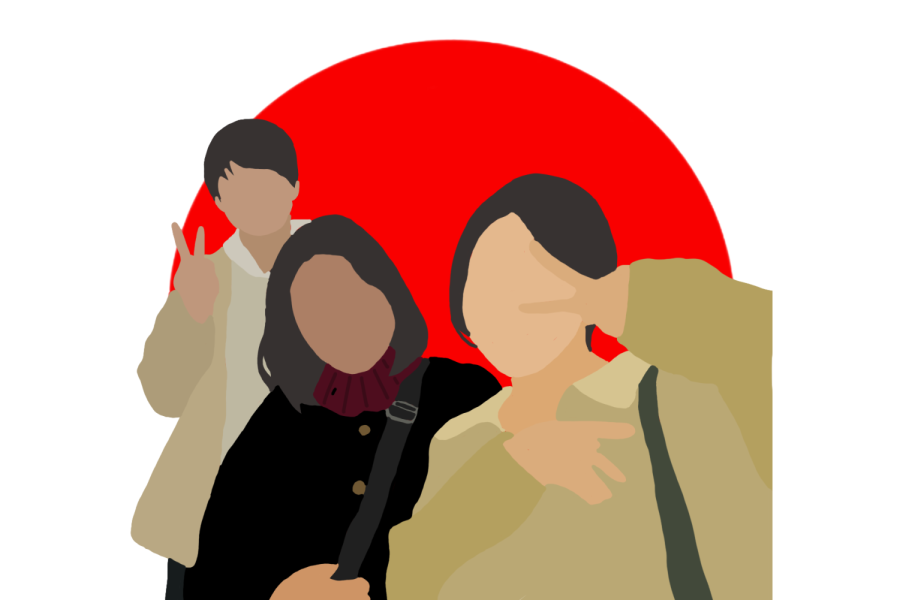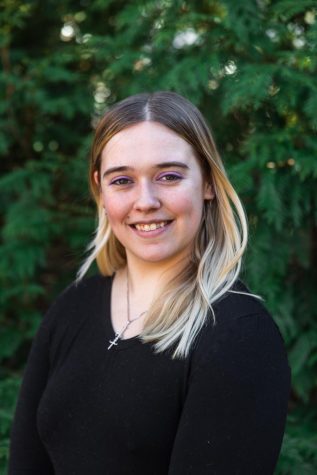Japanese ESL Students at UNA
March 24, 2022
Have you ever wondered what it would be like to learn a foreign language while in a foreign country? Throughout the month of March, 11 Japanese students arrived in the US to study English at the University of North Alabama. Along with their English studies, these students have also had the opportunity to experience US college life and build connections and friendships that will last a lifetime.
Megumi Hoshi, a 20-year-old from the big city Saitama, radiates beauty and kindness everywhere she goes. She has enjoyed her time at UNA so far as it has helped her expand her network and meet many friends. In her free time, she enjoys spending quality time with others, playing sports and shopping. Although she’s from Japan, Hoshi has also lived in Singapore because of her father’s job, and has visited Australia. She hopes to work abroad in the future and meet a lot of people.
Sana Kawano is from Kanagawa, where traditional and modern aspects of Japanese culture balance perfectly with one another. She has had a lot of experience traveling in her 21 years, having been to eight different countries including France, the UK, Italy, Belgium, China, Malaysia, Cambodia and Singapore. Kawano possesses a welcoming energy and her smile lights up every room. Her favorite event at UNA so far has been the Lighting of the Fountain because she was able to make many new friends and feel the lively UNA atmosphere. She enjoys listening to music and playing the guitar, piano and drums.
A rich cultural heritage can be found in Aichi, where Kazuki Tsuda is from. Tsuda, who is 22 years old, is fascinated with different cultures and loves watching movies, working out in the gym and playing baseball. This is Tsuda’s first time overseas and the abundance of international diversity at UNA has encouraged him to learn more about cultures from all over the world. In the future, Tsuda wants to teach Japanese to students studying abroad. He takes great pride in his culture, and is passionate to share it with others.
These three friends have many stories to tell and are very excited to be in the US for the first time. The program offers them more than just the opportunity to learn English abroad, for they are also able to learn about American culture, college life in the US, and much more!
The English as a Second Language, or ESL, program consists of five courses: speaking, writing, grammar, reading and listening. Hoshi’s favorite ESL class is the listening course because she loves the teacher and says that listening skills are important to her. Kawano and Tsuda both enjoy their reading course because the teacher is easy to talk to and understand.
Among the courses, each provides their own unique challenge. Hoshi finds the grammar challenging, Kawano finds listening challenging and Tsdua finds speaking challenging. Tsuda emphasizes that speaking is hard to study alone, and one must communicate with someone who can speak english well, as it also requires cognitive skills to be able to understand words quickly. Out of all languages, English has the largest quantity of vocabulary, with over 171,000 different words in the dictionary. English can also be difficult for learners and even native speakers because of its complex spelling and unique grammar.
Throughout their language learning journeys, Hoshi and Kawano have also studied French and Tsuda has studied Chinese. They all have very impressive english-speaking skills and hope to learn more throughout the program.
“I want to improve my English skills, especially speaking and listening, and I want to make more friends from abroad. I want to be able to study culture and human rights,” Tsuda said.
When asked what they miss about their homes, each provided insight into Japan’s special distinct food culture.
“I miss sushi! I worked at a seafood restaurant in Japan so once a week I ate sushi,” Kawano said.
“I like Japanese service in hotels or restaurants. There is a phrase in Japan, “itadakimasu,” (いただきます) which means respect for food and chef. After eating, we say “gochisousama,” (ごちそうさまでした) which also shows respect,” Tsuda said.
“I like Japanese food too. Japanese vegetables are so good because they are organic. The supermarket always has fresh vegetables,” Hoshi said.
Kawano also discusses the Coming of Age ceremony in Japan, which celebrates those who turn 20 years old. This celebration represents the day when people officially become adults. During this ceremony, people wear traditional Japanese clothing, and sometimes men wear formal Western clothes, like a suit and tie.
Another special part of Japanese culture is the importance of individual spirit.
“Most people think spirit is very important. Judo, an olympic sport, is very different from Western sports. It respects not only skills but also the spirit of the player,” Tsuda said.
UNA is lucky to have so many international students who can share their culture and expand others’ knowledge of the world.
The ESL program will take place until December, giving the students ten months to make the most out of their memorable study abroad trips. Hopefully they enjoy their time at UNA as much as UNA enjoys hosting them.




